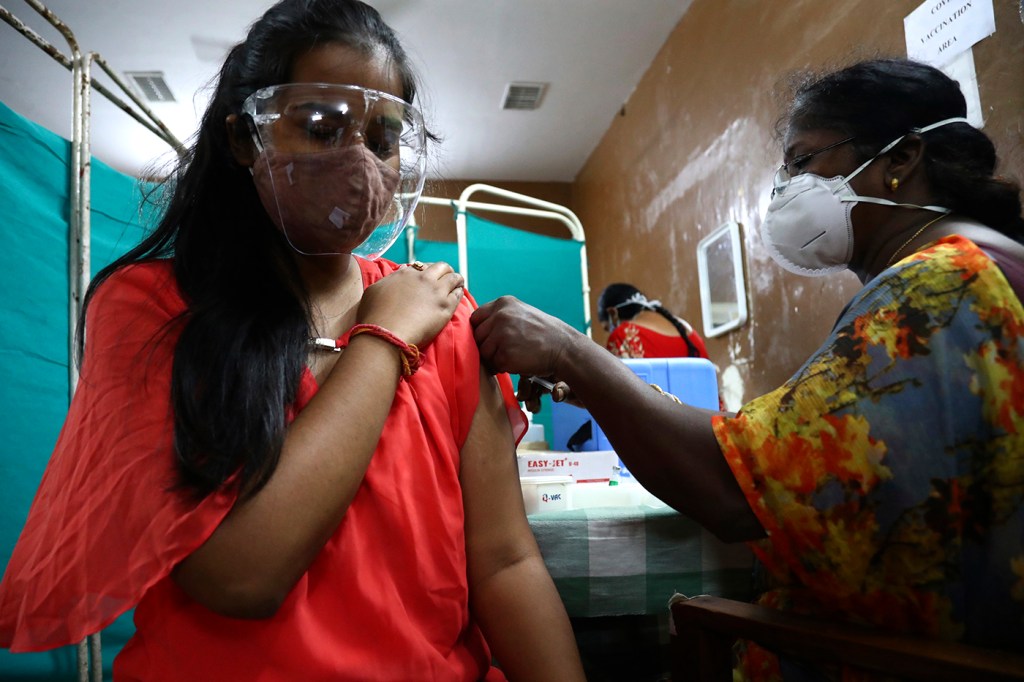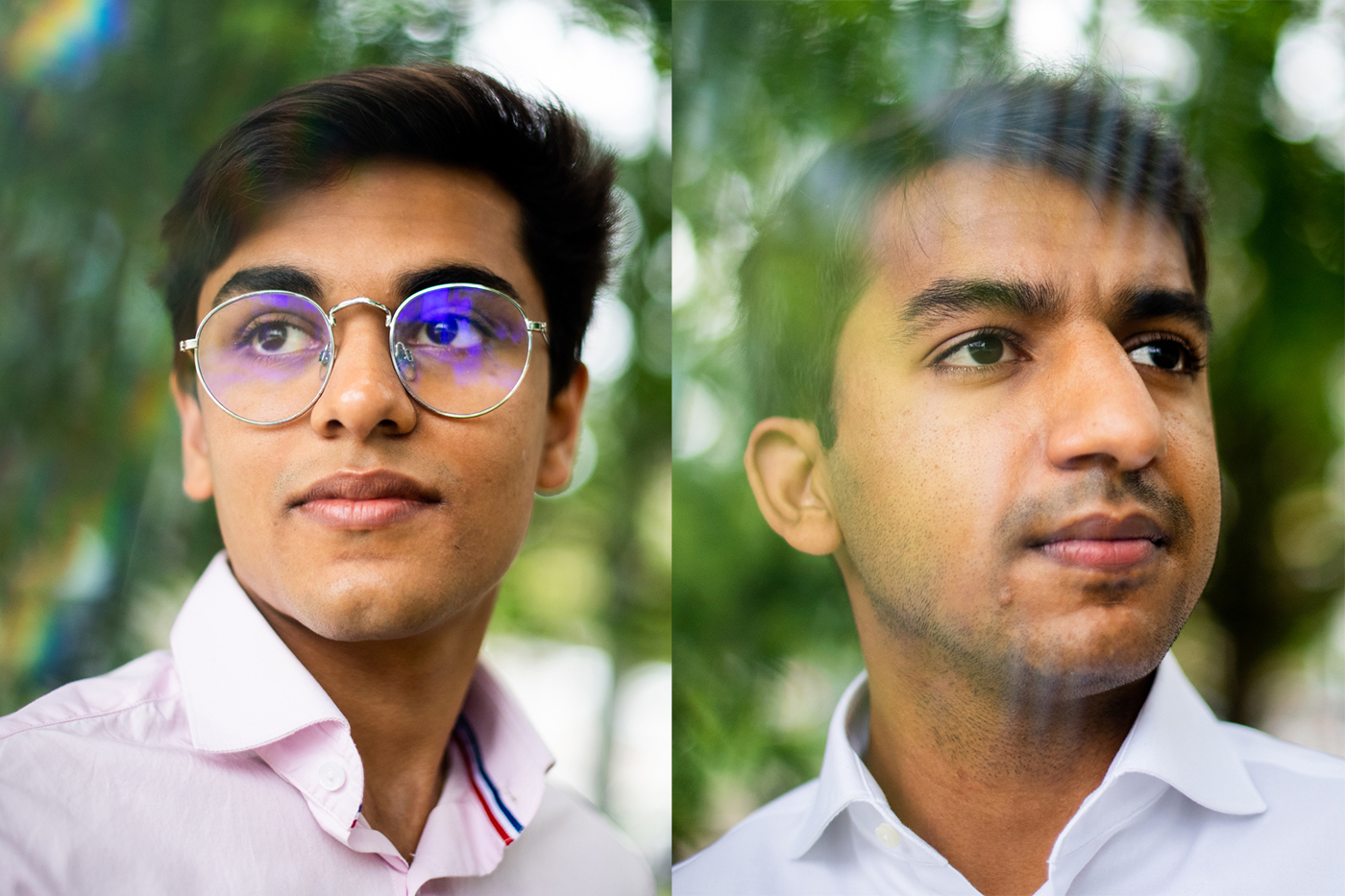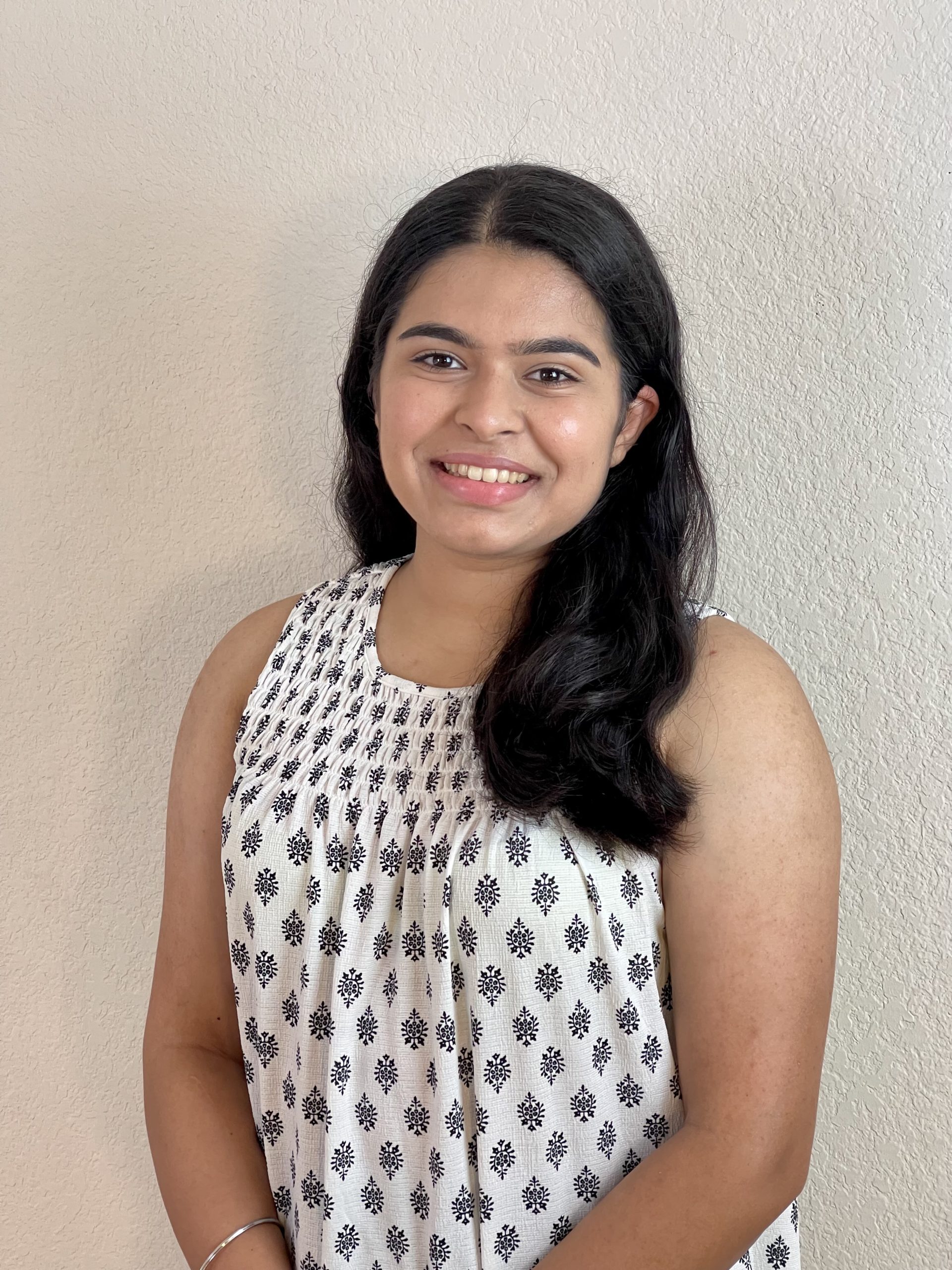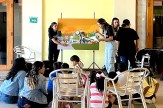These students wanted to help people back home. So they sprang into action.

When coronavirus infections peaked in India in May, with about 400,000 new cases a day, Northeastern students from India studying in the United States watched in horror as people they knew back home suffered.
Dharam Ashar, a business and economics major who will be a senior in the fall, was dismayed when his parents, whom he had not seen in over a year, had to cancel their U.S. visit when both tested positive for SARS-CoV-2, the coronavirus that causes COVID-19.
His mom and dad have since recovered, says Ashar,. But that hasn’t been the case for many others in a country hard hit by a pandemic-caused recession.
“I was wondering what can I do to help these people out,” says Ashar. “It’s my moral responsibility to give back to society and give back.”

Left to right: Dharam Ashar, who studies business and economics, and Karan Kishorepuria, who studies finance and nutrition. Together they raised thousands of dollars for people in India struggling from the pandemic. Photos by Matthew Modoono/Northeastern University
A music fan who enjoys Indian classical singer Javed Ali and Pakistani singer and actor Atif Aslam, Ashar came up with an idea how he would show his appreciation—he would belt out tunes on Instagram to raise money for charitable organizations such as Give India and UNICEF. He raised $750, or 54,000 rupees, enough of the Indian currency, he says, “to buy over a thousand meals.”
For Karan Kishorepuria, a finance major who graduated last month, charity literally began at home. His father encouraged him and his brother, Krishnav, to try and give 10 percent of their income to society. Barring that, “the most important thing I can give is my time and my energy,” he says.
Kishorepuria did exactly that, taking on leadership roles at a pair of student-led organizations at Northeastern, NUImpact, the investing initiative, and IDEA, for entrepreneurs.
The coronavirus was ravaging his home city of Kolkata earlier this year, with one out of every two people testing positive. His parents, who have never visited the United States, canceled a planned trip to Boston to see their son graduate. “And I knew that it was my moral responsibility, and I had a sudden urge that I needed to do something” to provide help.
That “something” turned out to be more than $3,600 dollars, or about 270,000 rupees, raised through a variety of initiatives, including a workout with one of India’s top fitness celebrities, Karan Bagri.

Saniya Purohit. Courtesy photo.
Kishorepuria and his brother set up a campaign on the Give India site with the goal of raising $10,000.
“The beauty of this platform was that they were charging zero percent platform fees, so all the money was going directly toward those most in need,” he says. And, any dollars raised are withdrawn from the account weekly and put straight to use, a reflection of the sense of urgency at the time.
The situation in India has steadily improved since then. Several Indian states have eased coronavirus restrictions as the number of new infections dropped to the lowest in more than two months, according to news reports.
The United States pledged to deliver more than $100 million in supplies, according to an April 28 fact sheet from the White House.
“Just as India sent assistance to the United States when our hospitals were strained early in the pandemic, the United States is determined to help India in its time of need,” the fact sheet said.
And President Biden pledged in early June to ship 80 million vaccine doses to hard-hit countries such as Canada, India, and Mexico. “We are sharing these vaccines to save lives and to lead the world in bringing an end to the pandemic,” Biden said in a June 3 statement.
Vaccinations in India only recently became free for adults. Citizens had to pay about 250 rupees, or about $3—”that’s a lot of money for Indians,” says Kishorepuria. Prime Minister Narendra Modi recently announced that all Indian adults will get free shots starting June 21.
Before then, Saniya Purohit, who will be a third-year business administration major at Northeastern in the fall of 2021, spent $100, or about 7,000 rupees, out of
her own pocket to secure vaccination slots for about seven low-income workers in New Delhi. “These are people who struggle for basic necessities” says Purohit, whose grandfather died of COVID-19.
She plans to buy more slots as they open for people who may not qualify yet for free vaccines. “Anyone in need is who I want to help the most,” she says.
Helping fellow Indians doesn’t have to cost money, these Northeastern students say. Given the sheer size of the university’s Indian community, impact can be felt in multiple ways.
“Check on your friends and ask them how they are doing, especially when so many of us have been away from family for so long” advises Kishorepuria, who stresses the mental health benefits of connections. “The Northeastern community is super strong.”
For media inquiries, please contact media@northeastern.edu.





